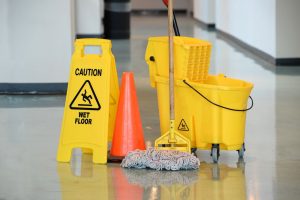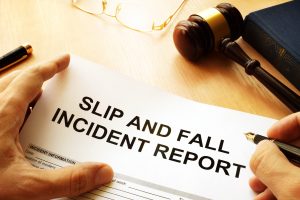Several years ago, changes to Florida’s slip-and-fall law made it more difficult for plaintiffs to win such cases. But as a recent six-figure verdict revealed, they continue to be worth pursuing, particularly when injuries are serious and your lawyer is experienced. 
“Successful Florida slip-and-fall cases are those that involve injuries that were clearly preventable,” said West Palm Beach Injury Lawyer Ryan Fogg. “Often times, corporations will create safety rules to prevent accidents like these. But if the management and staff fails to follow through and abide by those rules, serious injuries can result, and the corporation can be held accountable.”
Florida’s slip-and-fall statute is F.S. 768.0755. It refers to “premises liability for transitory foreign substances in a business establishment.” This is just a fancy way of saying legal responsibility for a slippery substance on the floor of a business that’s open to the public. In order to prevail in these cases, one must prove the property owner/controller had either actual or constructive knowledge of the dangerous condition that caused the fall. Actual knowledge would be if the property owner created the condition or was clearly informed about its existence. Constructive knowledge can be established when the condition:
- Existed for a substantial enough length of time that the business would/should have discovered it in the exercise of ordinary care.
- Occurred with regularity, and thus was foreseeable.
 South Florida Injury Lawyer Blog
South Florida Injury Lawyer Blog




